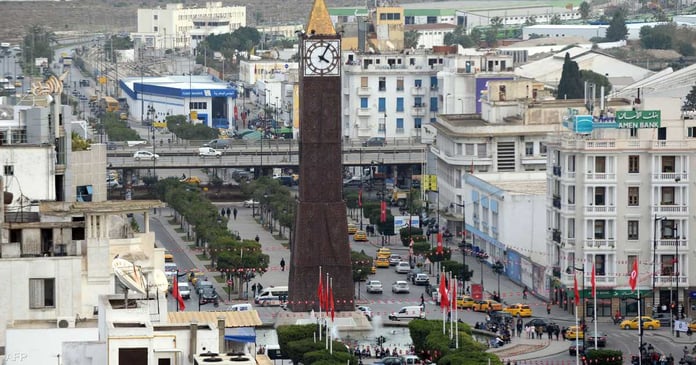Two Tunisian experts who spoke to “Sky News Arabia Economy” agreed on the need for swift action on the part of the government, in order to avoid more serious repercussions from the worsening economic crisis in the country, and to find quick solutions that do not put pressure on the Tunisian citizen.
Credit rating agencies have warned that Tunisia will face a possible default on its sovereign debt unless it obtains this loan, which should also lead to more bilateral financing flows.
Tunisia pays one of the highest public sector wage bills in the world, meaning the budget deficit will remain at around 5% of GDP, according to JP Morgan estimates, while Morgan Stanley warned that reserves of would not be enough to cover commodity imports for two months until this time next year given the current rate of drawdown of these reserves.
According to a report by Reuters, it can become an almost impossible task to pay off debts. Most of the country’s loans are domestic, but it has to repay a 500 million euro foreign loan in October and another in February.
How is the government changing?
According to Tunisian economist Hassan Bali, urgently needed government measures should include:
– Implementation of decisive reforms in the vital sectors of the Tunisian economy.
Implement correct and effective fiscal and monetary policies to reduce inflation and real economic growth.
– Finding solutions to strengthen confidence in the Tunisian economy and stimulate domestic and foreign investment.
Reduce borrowing policies and rely on plans to attract investment and support projects.
the specter of bankruptcy
In an attempt to answer MPs’ questions on the persistence of foreign borrowing policies amid the worsening economic situation, Namisa said: “In the event of a default in the repayment of the country’s foreign borrowings, we will declare the bankrupt state”. as she said.
The Tunisian official noted that “there is great pressure on the state budget, due to the fact that expenditure exceeds the state’s own revenues and resources, considering that the solution lies in finding other resources in addition to resorting to internal and external borrowing in order to incur expenses and repay external debts.
Actions can move standing water
If the Tunisian political analyst, Nizar Al-Jilidi, believes that the words of the minister were misunderstood, and that is meant that the government resumed its functions while the State was on the verge of bankruptcy, it is appropriate at the same time as the need to approve an urgent package of economic reforms, in order to avoid the worsening of the crises.
Al-Jalidi believes that the government faces a difficult task to save the Tunisian economy at present, as negotiations with the IMF falter, forcing it to adopt rapid internal reforms in the trading system as well. , investment and tax.
According to Al-Jalidi, preparations are currently underway in the country to ensure a strong tourist season in summer, whether in terms of security preparations or service facilities at the highest level, which could contribute significantly strengthening efforts to lift the economic blockade.
The Tunisian analyst says his country is seeking to revitalize the industrial sector to increase domestic product and offset the budget deficit, and that efforts are largely focused on the agricultural sector and phosphate production, as well as some other industries. productive.
taxes on the rich
In his bid to secure a bailout from the International Monetary Fund, Tunisian President Kais Saied has proposed raising taxes on the wealthy, suggesting it could be an alternative to tough social reforms.
Saeed said in a meeting with Prime Minister Naglaa Boden, “Instead of increasing subsidies under the pretext of rationalizing them, additional (tax) payments can be employed on those who illegally benefit from the subsidy of many materials and without submitting to any external diktat,” according to a statement released by the presidency.
Saeed stressed, “the need to achieve the desired balance by devising new methods based on justice and the preservation of civil peace”.
Saeed did not explain which group would benefit from the subsidy, or how the tax he proposed would be used.
Read the Latest World News Today on The Eastern Herald.


